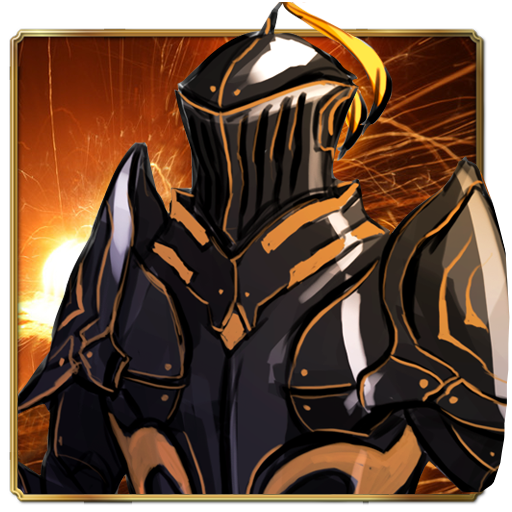It's funny you mention that, I hadn't even thought of it.
"he is all but dead".
"he is anything but dead".
I always held "all" and "anything" as two defenitions so entirely similar it wasn't really worth discerning between the two. A quick visit to wiktionary.com learned that all is anything pertaining to a particular class.
I am enlightened, thanks all! ;)
English class
I think it's a case of words being excluded from a sentence that are assumed to be understood as being there (if that made sense).
"He is all but dead."
would be expanded to
"He has suffered in every way except for death."
"He is all but dead."
would be expanded to
"He has suffered in every way except for death."
Quote: Original post by Talroth
English is what you got when you scraped up people from all over western Europe, dumped them on an island, and taught them to brew a wide assortment of alcoholic beverages, and then let them learn to talk to each other.
It isn't pretty so just smile and nod, and pretend it makes sense.
no, that's exactly why it *is* so beautiful.
[Formerly "capn_midnight". See some of my projects. Find me on twitter tumblr G+ Github.]
I would say that, in UK English which I obviously use, the "all but" construct (which I don't often make use of, I must say) would be assumed to mean everything else relating to the subject.
E.g. "He is all but finished" would mean he's essentially completed what he's doing but still has a couple of things to do, and "it's all but lost" would mean that there's limited chance of recovering something e.g. a particular situation.
I know, it doesn't make much sense because you'd expect it to be the other way around. Welcome to the English language where common sense is neither applied nor welcomed.
E.g. "He is all but finished" would mean he's essentially completed what he's doing but still has a couple of things to do, and "it's all but lost" would mean that there's limited chance of recovering something e.g. a particular situation.
I know, it doesn't make much sense because you'd expect it to be the other way around. Welcome to the English language where common sense is neither applied nor welcomed.
Quote: Original post by Kirl
Hij is alles behalve dood
Does Dutch also lack precise translations for everything/anything/something? That's probably part of the problem. I find lack of precision is a recurring problem with various German nouns, and alles/irgendwas/etwas/jede is somewhat muddled.
Quote: "zo goed als ..." seems like a good translation
"As good as"...yeah, pretty close to "all but".
Quote: Original post by TalrothThere's also "sheep", "deer", "fish".
Personally I think moose is the best word in English.
I saw a moose in the field.
I saw ten moose in the field.
None of this remembering how the plural nonsense goes. Mouse, mice. Goose, geese. Hen, hens. Die, dice, dies.
Personally, I like "mongoose". The plural of "goose" is "geese" but the plural of "mongoose" is "mongooses".
Quote: Original post by drakostar
Does Dutch also lack precise translations for everything/anything/something? That's probably part of the problem.
Yes, for example :
"Did you get anything?" -> "Heb je iets gekregen?"
"Yes, I got something" -> "Ja, Ik heb iets gekregen"
I believe the interchangeability of words like anything/something has something (or should that be anything? [wink]) to do with whether it's used in a question or not, and I remember reading somewhere that it is an idiosyncrancy of English, but I can't for the life of me remember where
Quote:
"zo goed als ..." seems like a good translation
"As good as"...yeah, pretty close to "all but".
Definately, although it's a translation out of necessity...
"As good as" translates directly to "zo goed als"
"All but" has not direct translation (that I'm aware of), but "zo goed als" renders the same meaning.
Quote: Original post by CodekaQuote: Original post by TalrothThere's also "sheep", "deer", "fish".
Personally I think moose is the best word in English.
I saw a moose in the field.
I saw ten moose in the field.
None of this remembering how the plural nonsense goes. Mouse, mice. Goose, geese. Hen, hens. Die, dice, dies.
Personally, I like "mongoose". The plural of "goose" is "geese" but the plural of "mongoose" is "mongooses".
Sheep is another one, but if you show too much liking for sheep then people might think you're from Australia or New Zealand.
And deer and fish both have alternate plural forms, they're just kind of funky in that you don't need to change to alternate.
Old Username: Talroth
If your signature on a web forum takes up more space than your average post, then you are doing things wrong.
If your signature on a web forum takes up more space than your average post, then you are doing things wrong.
I hear in japanese there is no past tense for words.
1984's newSpeak, now there's something practical, doublePlusGood language. :)
1984's newSpeak, now there's something practical, doublePlusGood language. :)
This topic is closed to new replies.
Advertisement
Popular Topics
Advertisement










